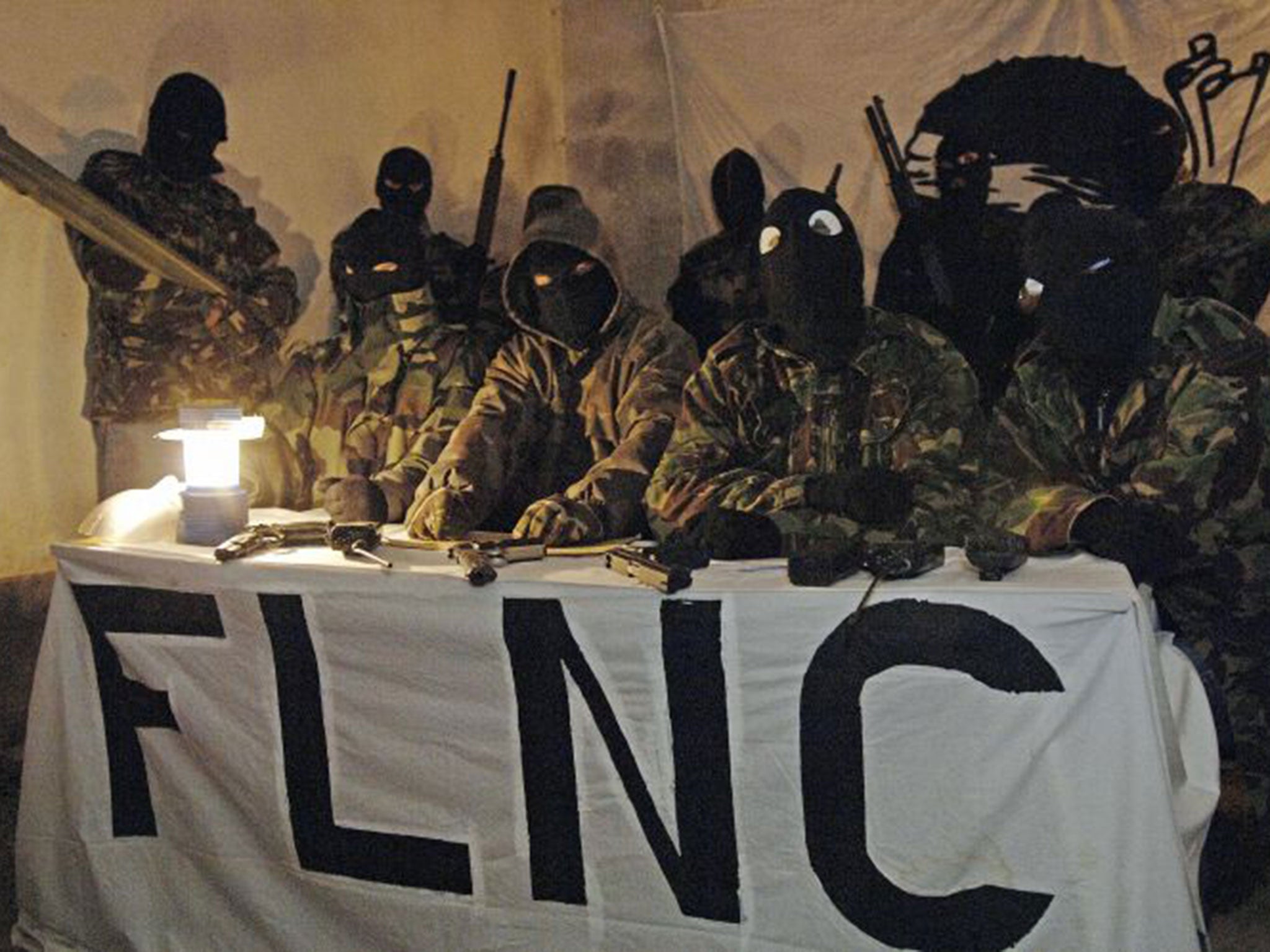Corsican terror group lays down arms in battle for independence from France
FLNC’s move appears to have been prompted by a recent decision by the island’s regional assembly to give people born there priority in buying property

Your support helps us to tell the story
This election is still a dead heat, according to most polls. In a fight with such wafer-thin margins, we need reporters on the ground talking to the people Trump and Harris are courting. Your support allows us to keep sending journalists to the story.
The Independent is trusted by 27 million Americans from across the entire political spectrum every month. Unlike many other quality news outlets, we choose not to lock you out of our reporting and analysis with paywalls. But quality journalism must still be paid for.
Help us keep bring these critical stories to light. Your support makes all the difference.
After 10,000 violent attacks in 40 years, the National Liberation Front of Corsica, the Mediterranean island’s largest armed group fighting for independence from France, has declared a permanent and unconditional ceasefire, citing progress made in Northern Ireland and the Basque region of Spain.
The terrorist group said in its 14-page declaration that it had decided “without further notice or conditions” to “unilaterally begin a demilitarisation process and a gradual exit from clandestine activities”.
FLNC’s apparent decision to renounce violence appears to have been prompted by the recent decision by the island’s regional assembly to give Corsican-born people priority in buying property on the island. Greater foreign ownership of property had proved a source of contention for decades. Many attacks by the organisation, formed in 1975, were targeted at the homes and businesses of foreigners.
In its statement the FLNC cited “these debates on topics forbidden for many years to suggest the outline of a political solution”. The group said that there would be no preconditions regarding the release of “political prisoners”.
But law enforcement officials say the group has been seriously weakened by internal blood-letting and the increasingly strong evidence of its links to organised crime.
In its first paramilitary operation, the FLNC killed two policemen. Since then, there have been over 10,000 attacks in Corsica. Some 40 murders have been linked to the group, whether attacks on police or politicians, or internal feuds. Separatists were also behind the assassination of Claude Érignac, the island’s top official, in 1998.
French authorities have issued a cautious welcome to the news. “We’ve taken note of the message, but we need time to check the contents,” said Bernard Cazeneuve, the Interior Minister.
The FLNC has broken truces in the past. Last month during a visit by Mr Cazeneuve to Corsica, a police station came under gunfire – highlighting the island’s reputation for lawlessness from criminal gangs.
Gilbert Thiel, a prosecutor who has conducted trials against FLNC members, told Agence France-Presse: “If the FLNC has really abandoned its armed struggle, then this is really the end of terrorism in Corsica.” But he added that a debate between hardliners and moderates was “still raging”.
“We have to hope that this announcement doesn’t cause a more radical wing to emerge, as happened during the peace process in Northern Ireland,” he said.
Subscribe to Independent Premium to bookmark this article
Want to bookmark your favourite articles and stories to read or reference later? Start your Independent Premium subscription today.
Join our commenting forum
Join thought-provoking conversations, follow other Independent readers and see their replies
Comments